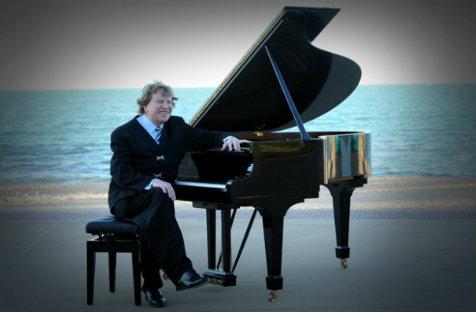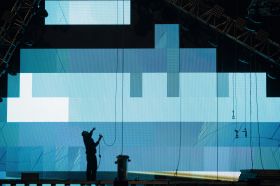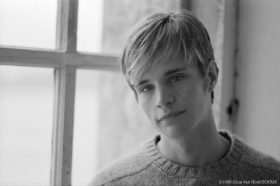‘See you in half an hour’ says the London-based Australian pianist Piers Lane after welcoming the audience.
First thing you notice when Lane is seated at the piano are his louder than loud socks. In this recital, they were black and red and blazed with the number 989. The number seemed to jump off the stage.
Lane has an affinity with the Prelude as a musical form. Several years ago, he performed a selection of Scriabin’s – also in the Medici Series – for which he was given a standing ovation.
By the 19th century, the Prelude had morphed into a short form in its own right, a musical snapshot of an emotion or idea.
One of Lane’s major strengths is his intelligent approach to interpretation. He’s a scholar as much as a dazzling virtuoso, in the same vein as the concert pianist Stephen Hough, another regular in this recital series. Lane’s acute knowledge brings depth to his playing and he has the gift to convey meaning in this succinct form.
Rachmaninov’s Ten Preludes of Opus 23 are tinged with nationalistic Russian elements. Each of the Preludes captures the essence of this Romantic composer’s quintessential sound.
Lane excelled in the first, rather mournful Prelude, painting the melody in glorious pastel colors. Luxuriously, significant notes within each chord shone through the dark textures. From these tender reaches, he lunged into a fierce delivery of the second, which favors bell-like effects and presents as a cyclonic storm. The Fourth suited Lane’s lyricism in its wistful Chopin-like celebration of a tune sailing over a liquid, yearning accompaniment.
In the Ninth, Lane revealed its drama almost at the speed of light and the pianist’s formidable technique was shown to advantage. Finally, in the Tenth, he conjured the poetry of the theme and demonstrated his flair for making a tune sing out to the audience albeit in a whispered tone.
The second half was dedicated to Schubert’s innovative Sonata in A Major, D 959. A juggernaut in its ambitious scale, it was written in the composer’s last few weeks and, with quotations from several of his major works such as The Wintereisse, it is said to reflect Schubert’s life as well as the human condition.
Schubert’s Sonata is cyclically woven together by a complexity of melodic and harmonic strands. The work was an excellent vehicle for Lane’s skill in shaping structures and as an imaginative colorist of the melodic line. The conversational interplay between left hand and right hand convinced and the inner voices were imbued with luminous tone.
There are those who regard Schubert’s music as repetitive. Accordingly, Lane was fastidious about deploying a variety of shading in reprising important material. This was especially so at the startling recapitulation in the first movement where the opening theme reappears.
Through Lane’s beautifully detailed attention to Schubert’s architecture it was as if he took the listener by the hand for a guided tour inside the music.
Piers Lane – Medici Concerts
Piers Lane – piano
RACHMANINOV – Ten Preludes, Op 23
SCHUBERT – Sonata in A major D 959
Conservatorium Theatre, Southbank, Brisbane
10 March





